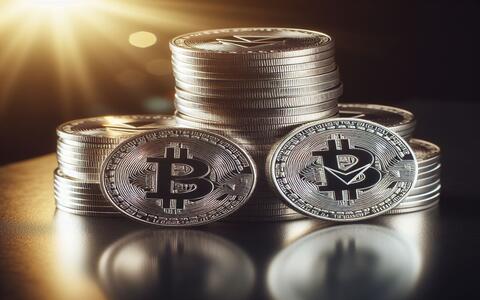
Worldwide Currency: Futuristic Goal or Unrealistic Notion?
In the ever-evolving tapestry of global finance, the concept of a worldwide currency has long captured the imaginations of economists, policymakers, and ordinary citizens alike. While the idea of a single, universally accepted currency holds immense allure, its viability remains a subject of intense debate. Is a worldwide currency a futuristic goal worth pursuing, or is it an unrealistic notion destined to remain a pipe dream? This comprehensive exploration delves into the complexities of this intriguing topic, examining the potential benefits, pitfalls, and challenges associated with the implementation of a global monetary system.
1. What are the Potential Benefits of a Worldwide Currency?
Elimination of Currency Fluctuations and Transaction Costs:
One of the primary advantages of a worldwide currency is the elimination of currency fluctuations and the associated transaction costs. Exchange rate volatility can wreak havoc on international trade and investment. A global currency would eliminate these fluctuations, fostering smoother and more efficient cross-border transactions. Moreover, the exorbitant fees associated with currency conversions would become a thing of the past, saving businesses and individuals substantial sums.
Reduced Inflation and Increased Price Stability:
A worldwide currency has the potential to mitigate inflation and promote price stability. By standardizing monetary policy across nations, central banks could work in concert to control the money supply and curb inflationary pressures. This would create a more stable economic environment, benefiting businesses and consumers alike.
Enhanced Economic Integration and Globalization:
A global currency would serve as a catalyst for economic integration and globalization. It would facilitate seamless cross-border trade, investment, and labor mobility. Businesses could operate more efficiently, consumers would have access to a wider range of goods and services, and workers would have greater opportunities to pursue employment abroad.
2. Are There Any Pitfalls to Consider?
Loss of Monetary Sovereignty:
One of the primary concerns with a worldwide currency is the potential loss of monetary sovereignty. Each nation would relinquish control over its monetary policy, ceding authority to a central global body. This could limit the ability of individual governments to respond effectively to domestic economic conditions.
Challenges of Currency Management:
Managing a worldwide currency would be an undertaking of unprecedented scale and complexity. Determining the appropriate monetary policy, setting interest rates, and controlling inflation would require the cooperation and coordination of numerous central banks. The sheer size and diversity of the global economy could make this an extremely daunting task.
Potential for Systemic Instability:
A global currency would create a highly interconnected financial system. If one nation experienced a financial crisis, the fallout could ripple through the entire global economy. The absence of national monetary sovereignty could make it difficult to isolate and contain financial shocks, increasing the risk of systemic instability.
3. What are the Realistic Alternatives to a Worldwide Currency?
Regional Currencies and Trade Blocs:
Instead of a single worldwide currency, some experts advocate for the adoption of regional currencies within trade blocs. This approach would allow for greater flexibility and autonomy while still promoting economic integration within specific regions. Examples of such arrangements include the eurozone in Europe and the Economic Community of West African States (ECOWAS).
Special Drawing Rights (SDRs):
Special Drawing Rights (SDRs) are an international reserve asset created by the International Monetary Fund (IMF). SDRs are not a currency in the traditional sense, but they can be used to settle international transactions and supplement national reserves. Expanding the role of SDRs could provide an alternative to a worldwide currency while maintaining the sovereignty of individual nations.
4. What are the Challenges to Implementing a Worldwide Currency?
Political and Economic Differences:
Implementing a worldwide currency would require a high degree of political and economic convergence among nations. Differing political systems, economic ideologies, and levels of development could hinder the establishment of a consensus on monetary policy. Moreover, the reluctance of some nations to surrender monetary sovereignty may pose a significant obstacle.
Technical and Operational Complexities:
The technical and operational complexities involved in creating and managing a worldwide currency should not be underestimated. Establishing an appropriate monetary framework, infrastructure, and regulatory system would be a monumental undertaking requiring extensive coordination and cooperation among central banks and international organizations.
5. Is a Worldwide Currency the Future of Global Finance?
The future of a worldwide currency remains uncertain. While its potential benefits are undeniable, the pitfalls and challenges associated with its implementation are substantial. Factors such as political will, economic conditions, and technological advancements will ultimately determine whether or not a global monetary system becomes a reality.
In the meantime, the debate continues. Some experts believe that a worldwide currency is inevitable, while others maintain that it is an unrealistic pipe dream. The path forward is likely to be one of gradual convergence, with regional currencies and international cooperation serving as stepping stones towards a more integrated global monetary system.
:
Discussion Question:
Do you believe a worldwide currency is a realistic possibility, or is it an unrealistic notion? Share your thoughts and perspectives with the community.
Call to Action:
Join the ongoing conversation on the future of global finance by sharing your views on our social media channels and engaging in discussions with other readers. Your insights and opinions are valuable contributions to the discourse on this fascinating and ever-evolving topic.






